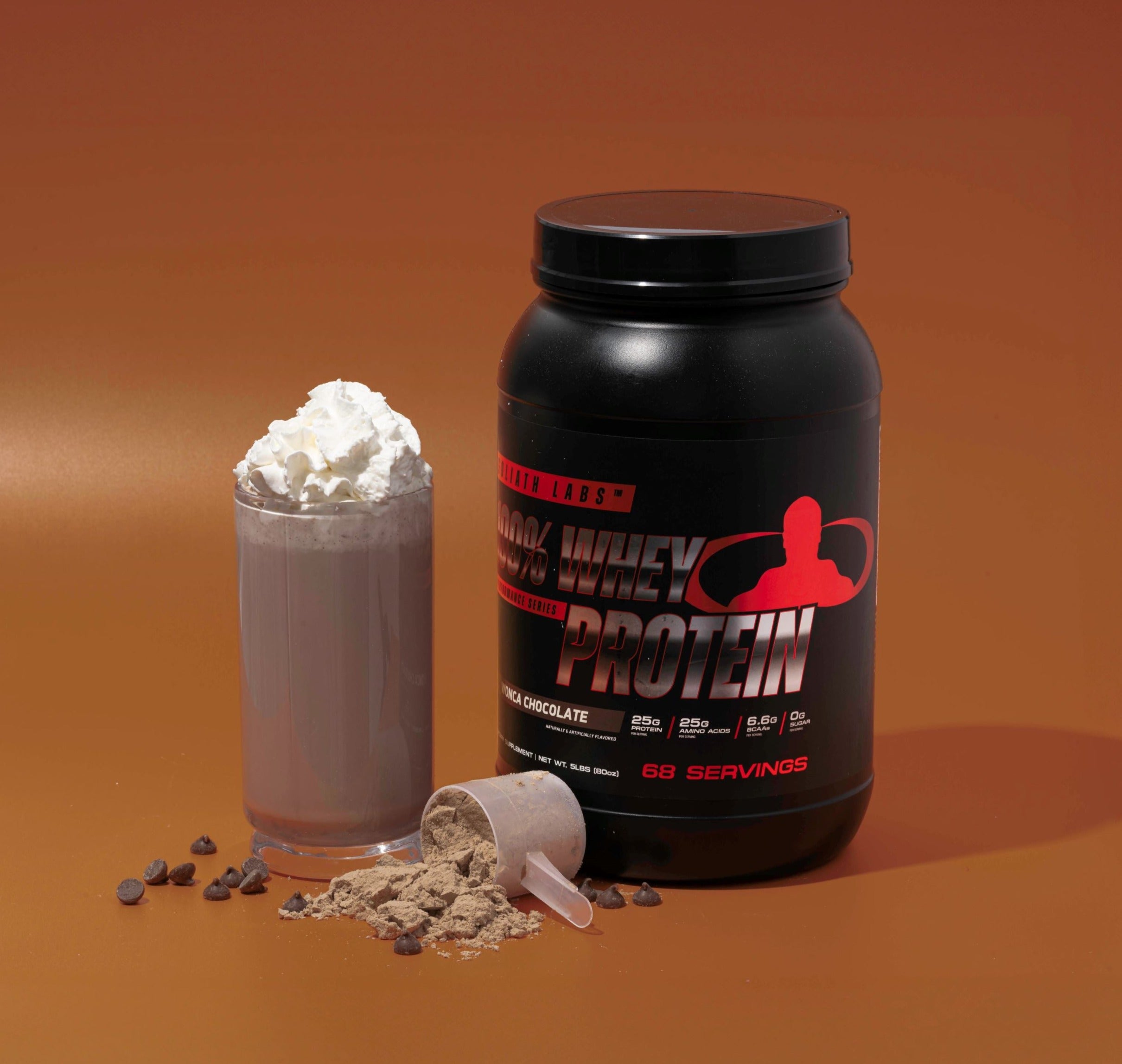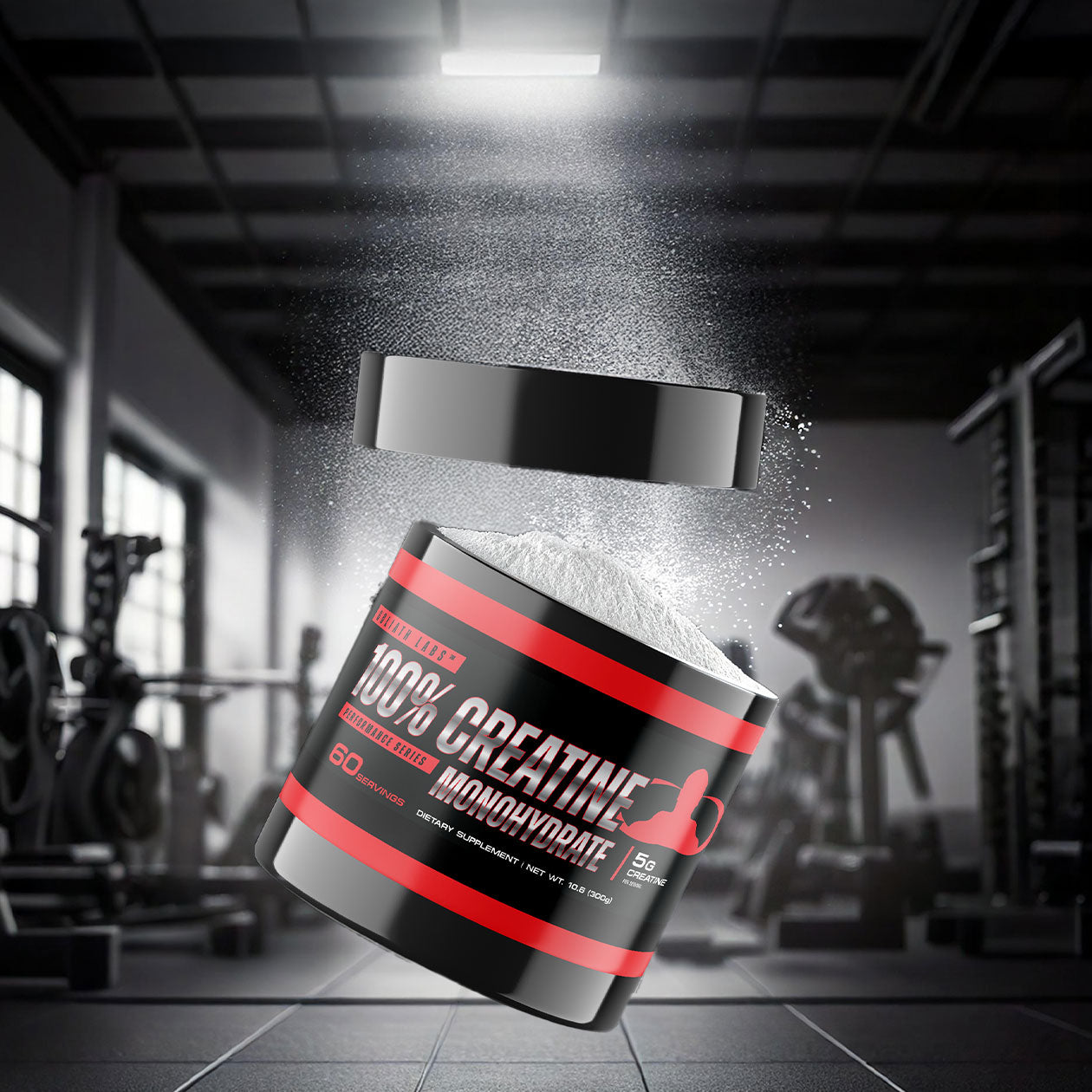Yes, you can take creatine at night. It’s not a stimulant, so it won’t disrupt your sleep. In fact, nighttime dosing may support overnight muscle recovery, replenish energy stores, and help you wake up less sore. Just make sure you're using a pure, stimulant-free formula.
You’ve Got the Basics, But Timing Still Feels Unclear
Creatine’s benefits aren’t a mystery. We’re talking about stronger lifts, faster recovery and bigger gains. Not much to it really.
But when it comes to when to take it, things get murky. Some swear by morning routines, others stick to post-workout windows, and many worry that nighttime use might wreck their sleep, digestion, or next-day focus.
That hesitation makes sense, you're putting something in your body hours before rest, and you want answers.
What Creatine Does in the Body
If your muscles had a gas tank, creatine would be the reserve fuel you tap into when you're pushing through that final rep, chasing a sprint finish, or grinding out the last 20 seconds of a HIIT interval.
It works by restoring adenosine triphosphate, ATP for short, the chemical that powers explosive effort. Without ATP, your muscles stall. With creatine, they refill their energy stores faster and go harder, longer.
Creatine and Cellular Energy
Every time your muscles twitch, ATP is spent. And during high-intensity effort, your natural ATP supply burns out in seconds.
Creatine swoops in and donates a phosphate group, like a cellular jumper cable, rapidly converting spent ADP back into usable ATP. That means more reps before failure, more force behind your lifts, and a quicker reset between efforts.
But this isn’t a flash-in-the-pan compound. Creatine accumulates in your muscle tissue over time.
The more consistently you take it, the fuller your storage becomes, and the more potent its effects. You’re not chasing a single workout boost. You’re building a system that performs better, regenerates faster, and holds more output in reserve every day.
Daily Dosing, Not Immediate Results
Here’s the kicker for anyone expecting a caffeine-style surge: you won’t “feel” creatine in the moment. It doesn’t give you a buzz.
There’s no tingle, no rush, no sudden jolt of energy. And that’s exactly why it works so well. It’s a foundational tool, not a flashy one.
To unlock the benefits, you need daily intake.
Whether you train or not, creatine needs to stay in your system to be effective. Saturated muscle tissue is the goal, and that only happens with regular use.
Timing? Less critical. Morning, post-workout, before bed, it all works. What matters is that you take it every day. Miss doses, and you reset the process. Stay consistent, and you’ll stay stronger.
Why Taking Creatine at Night Actually Makes Sense
Let’s talk practicality. Most people don’t crush their workouts at sunrise, they lift after work, hit cardio after dinner, or squeeze in a session between late responsibilities.
If your training happens in the second half of the day, it makes sense to fuel recovery in that same window. Creatine taken at night falls neatly into that rhythm.
Your muscles don’t clock out when you stop lifting, they rebuild overnight.
Deep sleep is when tissue repair hits its peak. By dosing creatine before bed, you give your body the raw materials it needs to accelerate that regeneration process.
Combine it with a slow-digesting protein like casein or a balanced evening meal, and you create a recovery environment that works while you rest. Plus, carbs and protein naturally spike insulin, one of the key hormones that helps shuttle creatine into muscle cells more efficiently.
And while anecdotal feedback isn’t peer-reviewed, thousands of lifters swear by evening dosing.
Many report waking up with less soreness, feeling “restocked” instead of rundown. Some even describe smoother mornings with more energy and less joint stiffness, likely due to overnight hydration and ATP restoration.
We’ve seen this pattern play out with customers from every background, shift workers, busy parents, first-time gymgoers.
Nighttime dosing isn’t a trend. It’s a practical strategy that fits real life. If that’s when you remember to take it, and especially if that’s when you train, it might just be the perfect time.
Can Creatine Keep You Awake?
No. Creatine doesn’t interact with the central nervous system the way caffeine or pre-workout stimulants do.
It doesn’t elevate heart rate, raise cortisol, or trigger alertness hormones. That means it won’t hijack your sleep cycle or make you feel wired when your body’s winding down.
In fact, taking creatine at night may actually support better sleep, not interfere with it.
Recovery happens most effectively during deep, slow-wave sleep, when muscle tissue repairs, hormone levels stabilize, and the nervous system resets.
Creatine aids this by fueling overnight ATP replenishment and reducing muscle inflammation, which may help you wake up feeling less stiff, less sore, and more prepared for early-morning training.
Some users mention experiencing unusually vivid dreams after starting nighttime creatine.
While this hasn’t been linked scientifically, it’s more likely a coincidence, or a result of improved recovery leading to deeper, uninterrupted REM sleep.
What matters is this: if your creatine is pure (no added stimulants or caffeine), there’s no physiological reason it should disrupt your sleep.
When You Take Creatine Matters Less Than You Think
If you’ve been obsessing over the clock, morning? post-workout? right before bed?, you can stop.
Unlike fast-acting stimulants, creatine doesn’t rely on precision timing to work. It’s not about the hour you take it, it’s about building muscle saturation over days and weeks.
That’s why most of the research on creatine timing points to a single conclusion: consistency wins.
The Research on Timing and Effectiveness
Scientific trials have compared dosing times from every angle, morning versus evening, pre- versus post-workout, even split doses.
Across nearly all outcomes, strength, muscle size, recovery, the differences are negligible. Daily use is what delivers results, not the timestamp on your shaker bottle.
That said, taking creatine alongside carbohydrates and protein can slightly improve its uptake, thanks to insulin’s role in cellular transport.
That’s where the post-workout crowd gets its argument. But if your evening meal includes a protein source and some carbs, you’re checking the same metabolic boxes.
Consistency Beats Precision
Your muscles don’t care what time it is, they care whether creatine is available when they need it. And that availability depends on saturation, which only comes from routine.
Skipping doses lowers your stored levels, making everything from your lifts to your recovery feel sluggish.
The best time to take creatine is the time you’ll actually remember. If that’s after your evening workout, before your late dinner, or right as you wind down, perfect.
Goliath Labs formulates for real-world schedules, because performance doesn’t live in a lab, it lives in your life. Stay consistent, and the benefits will follow, no stopwatch required.
Is There a Wrong Way to Take Creatine?
Creatine is remarkably forgiving, but that doesn’t mean you can’t mess it up.
The most common mistake? Inconsistency. Skipping days resets your progress. Creatine works by building up in your muscle tissue, and missing doses stalls that saturation.
If you take it “when you remember,” you’re not giving your body the steady input it needs to deliver results.
The next misstep is underdosing. A scoop here, a sprinkle there, it doesn’t cut it. You need 3 to 5 grams per day, every day, to reach and maintain optimal muscle creatine levels.
That’s the clinical sweet spot. Anything less is like filling your gas tank one cup at a time.
And finally: avoid gimmicks. Flashy blends, mystery formulas, overpriced hybrids, most are distractions. Stick with creatine monohydrate.
It’s the most researched, most bioavailable, and most cost-effective form on the market. Micronized versions dissolve easier, which helps with digestion, especially at night.
You don’t need to cycle creatine. You don’t need loading phases unless you want quicker saturation. You just need a clean, proven product, like the kind Goliath Labs has delivered for over 20 years.
Start Here If You Want to Try Nighttime Dosing
If you’re ready to make creatine part of your nighttime routine, start with the basics done right.
Step 1: Take 3 to 5 grams of pure creatine monohydrate in the evening, ideally with a protein shake or small meal. Pairing it with food supports absorption and minimizes the chance of stomach upset, especially if you’re sensitive to supplements on an empty stomach.
We recommend using a micronized creatine powder.
It dissolves more completely, digests more comfortably, and is less likely to cause bloating, a key benefit if you’re taking it close to bedtime.
Step 2: Give it 2 to 4 weeks of consistent nightly use.
Step 3: Track how you feel in the morning. Are you waking up sore, groggy, or depleted, or is your recovery improving? Is your strength holding steady through early workouts? Small changes can signal that your body’s adapting well.
The goal isn’t to feel a surge, it’s to wake up stronger than you did yesterday.
Nighttime creatine works best when it becomes a habit, not an afterthought. Plug it into your routine and let the results speak for themselves.
Creatine doesn’t care what time the clock says
Whether you’re training after dark, rebuilding while you sleep, or just trying to stay consistent, nighttime dosing fits seamlessly into real-world routines. And when done right, it becomes less of a supplement and more of a silent performance partner.
At Goliath Labs, we make products for people who work hard, train harder, and don’t have time to guess what’s in their scoop. Our 100% Creatine Monohydrate is pure, micronized, and designed to deliver, day or night. No fillers, no shady stuff, just clinically backed power in every serving.
If you’re ready to simplify your stack and see what real recovery feels like, visit GoliathLabs.com and make creatine part of your nightly ritual.
Strength builds in your sleep, give your body what it needs to rise stronger.



